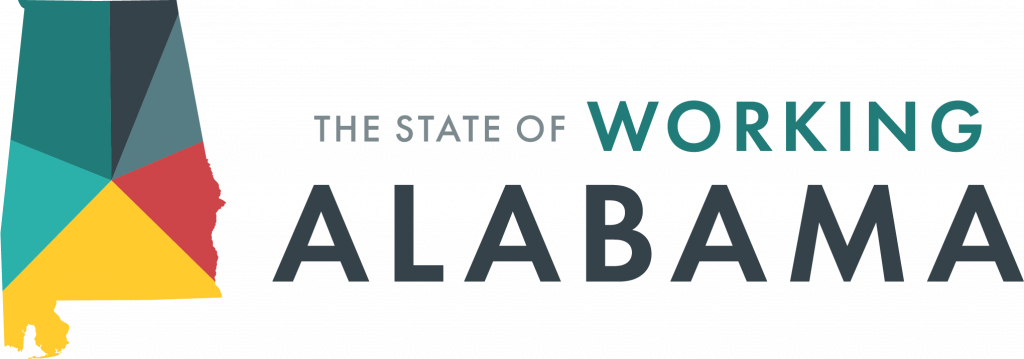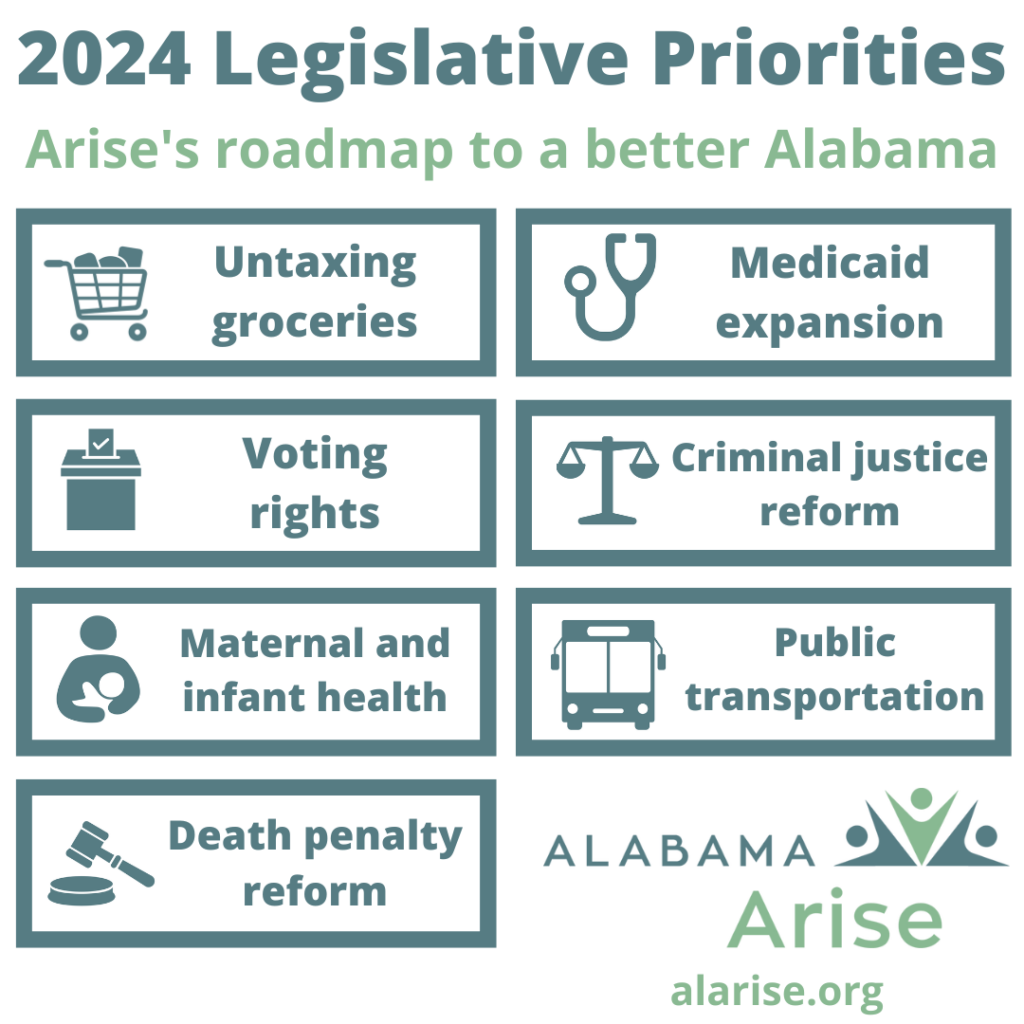
Alabamians need quality jobs that provide economic security and an opportunity to get ahead. That was the message Alabama Arise staff and members were excited to share with acting U.S. Secretary of Labor Julie Su during her visit to Birmingham last week.
Numerous Arise supporters participated in a worker listening session with the Department of Labor (DOL) on June 11. And worker policy advocate Dev Wakeley represented Arise at a June 12 roundtable meeting on good jobs.

The DOL’s initiative to enhance job quality aligns well with Arise’s advocacy to improve life for Alabamians who are marginalized by poverty, Wakeley said. He also praised Su’s willingness to visit Alabama to hear workers’ concerns personally.
“We saw the closest thing you could imagine to unity of purpose,” Wakeley told AL.com after the visit. “When the Department of Labor comes in and talks about wanting to build good jobs that really allow for human beings to thrive and advance and to provide for their families, we are grateful for their presence, and we love to hear that.”
‘Alabama’s workers should not have to settle’
Su expressed her appreciation for Arise’s work as well. She praised both Arise and Jobs to Move America (an Arise member group and partner in the Alabama Coalition for Community Benefits) during a June 12 news conference at the North Birmingham Library.
“I did want to thank the union leaders for showing up here and every single day, to Jobs to Move America and Alabama Arise, who have helped make this trip so rich and meaningful for me,” Su said. “You are all truly incredible.”
Su came to Alabama on the second stop of the DOL’s Good Jobs Summer Tour. The tour aims to promote and build support for the department’s Good Jobs Principles, a shared framework for job quality for workers, businesses, unions, advocates and other interested parties. The principles include equitable pay and benefits, safe and healthy workplaces, and an organizational culture that values every worker’s contributions. Birmingham Mayor Randall Woodfin announced Birmingham’s commitment to the principles during the news conference.
Arise proudly supports and endorses the Good Jobs Principles. Learn more about them here.
“We are being intentional about connecting all of Alabama’s residents and all of Birmingham’s workers to good jobs,” Su said. “Because Alabama’s workers should not have to settle. Because no one should have to work full time year-round and still live in poverty. No one should have to work two or three jobs and still barely be able to put together a life. That is not the American promise. That is not the American dream.”
Workers’ rights, public transportation uplifted during listening session
Su’s remarks reflected many of the concerns that Birmingham-area workers shared during a listening session with Su and Woodfin. More than 70 people attended the June 11 session, and many discussed their personal experiences with workplace challenges or lack of essential work supports.

Several workers underscored the necessity of protecting employees’ right to form and join unions if they choose. Others highlighted the need for higher pay and more robust benefits like child care and health insurance. The final attendee to speak was longtime Arise member Marva Douglas, who emphasized the importance of securing state funding for public transportation so every Alabamian can get to work, school or anywhere else they need to go.

An opportunity infrastructure
Su said the DOL stands with workers in advancing racial justice and breaking down other systemic barriers to job quality. Good jobs, she said, are about more than just making ends meet today. They are about the promise of a better tomorrow.
“A good job … means a job with security,” Su said. “A job where you know that you can not just get by, but get ahead. Where you have leave and benefits, so if you or your children need to go to a doctor, you can. Where you have a retirement plan so that you know that at the end of a career, you can retire with dignity.”
Making this vision of job quality a reality will require the creation of “opportunity infrastructure” in communities across the country, Su said. That means bringing workers, businesses, policymakers, advocates and educational institutions together to build an inclusive economy for everyone, she said.
“We have more bridges to build,” Su said. “The bridge from poverty to prosperity. The bridge from racial exclusion to real equity. So let’s roll up our sleeves, and let’s build together.”


